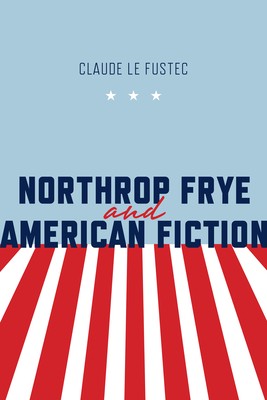
- We will send in 10–14 business days.
- Author: Claude Le Fustec
- Publisher: University of Toronto Press
- ISBN-10: 1442647698
- ISBN-13: 9781442647695
- Format: 15.8 x 22.9 x 2.3 cm, hardcover
- Language: English
- SAVE -10% with code: EXTRA
Reviews
Description
Northrop Frye and American Fiction challenges recent interpretations of American fiction as a secular pursuit that long ago abandoned religious faith and the idea of transcendent experiences. Inspired by recent philosophical thinking on post-secularism and by Northrop Frye's theorizing on the connections between the Bible and the development of Western literature, Claude Le Fustec presents insightful readings of the presence of transcendence and biblical imagination in canonical novels by American writers ranging from Nathaniel Hawthorne to Toni Morrison.
Examining these novels through the lens of Frye's ambitious account of literature's transcendent, or kerygmatic power, Le Fustec argues that American fiction has always contained the seeds of a rejection of radical skepticism and a return to spiritual experience. Beyond an insightful analysis of Frye's ideas, Northrop Frye and American Fiction is powerful testimony of their continued interpretive potential.
EXTRA 10 % discount with code: EXTRA
The promotion ends in 10d.15:06:25
The discount code is valid when purchasing from 10 €. Discounts do not stack.
- Author: Claude Le Fustec
- Publisher: University of Toronto Press
- ISBN-10: 1442647698
- ISBN-13: 9781442647695
- Format: 15.8 x 22.9 x 2.3 cm, hardcover
- Language: English English
Northrop Frye and American Fiction challenges recent interpretations of American fiction as a secular pursuit that long ago abandoned religious faith and the idea of transcendent experiences. Inspired by recent philosophical thinking on post-secularism and by Northrop Frye's theorizing on the connections between the Bible and the development of Western literature, Claude Le Fustec presents insightful readings of the presence of transcendence and biblical imagination in canonical novels by American writers ranging from Nathaniel Hawthorne to Toni Morrison.
Examining these novels through the lens of Frye's ambitious account of literature's transcendent, or kerygmatic power, Le Fustec argues that American fiction has always contained the seeds of a rejection of radical skepticism and a return to spiritual experience. Beyond an insightful analysis of Frye's ideas, Northrop Frye and American Fiction is powerful testimony of their continued interpretive potential.


Reviews